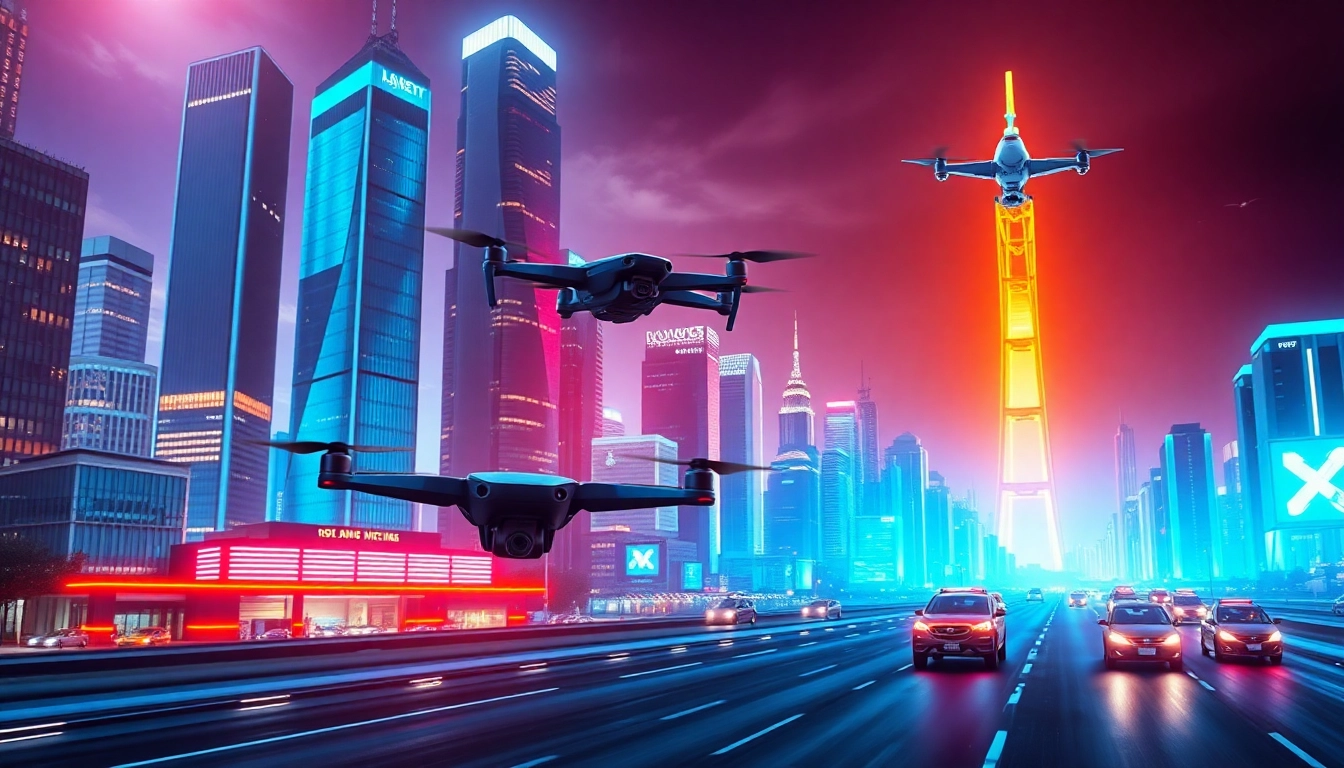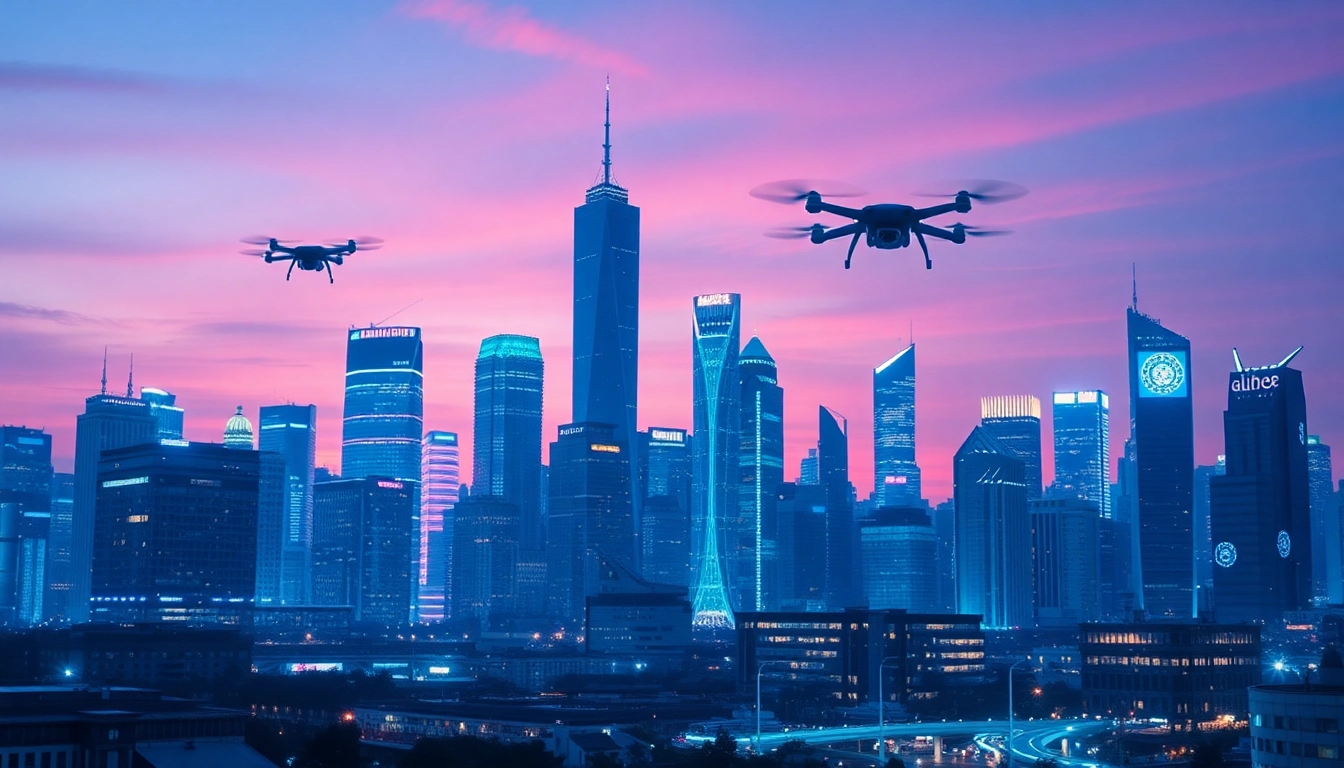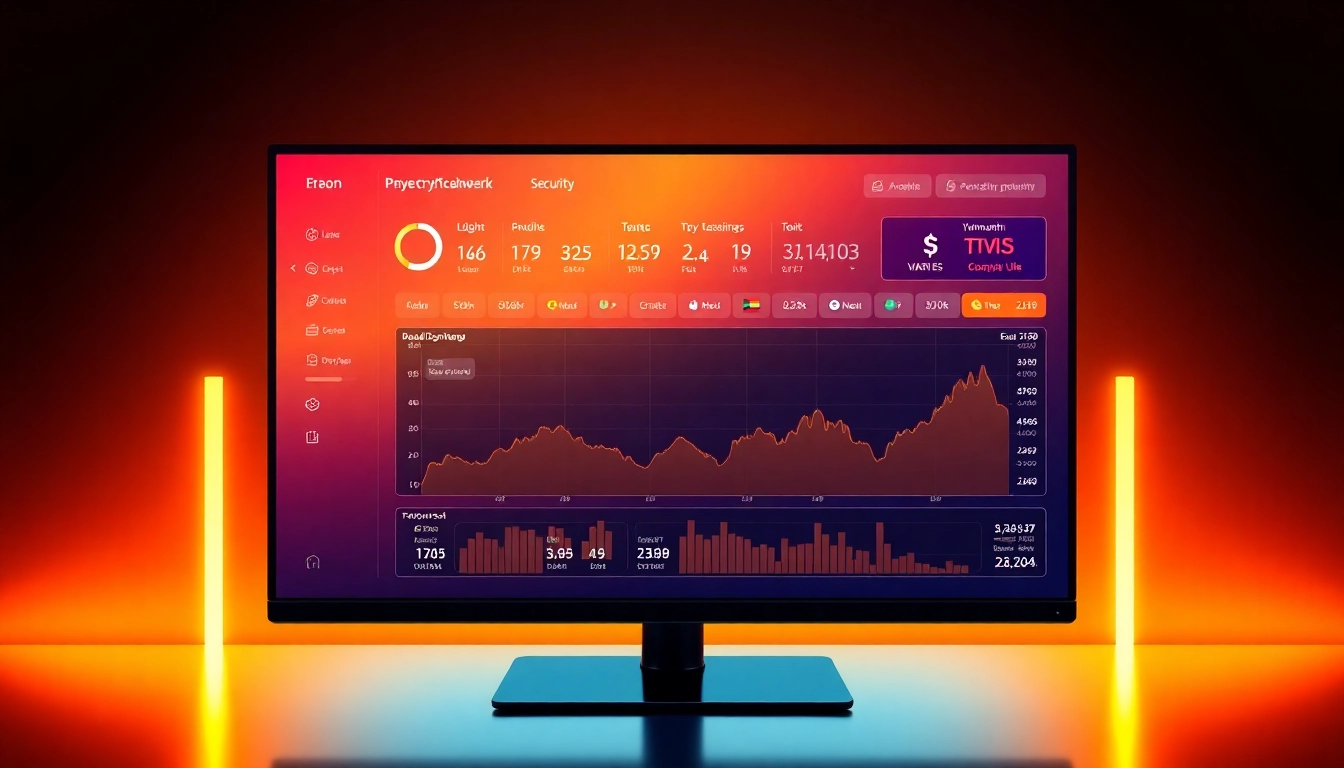What is Technology?
Definition and Evolution
Technology is often defined as technology is the application of scientific knowledge to solve real-world problems. This definition captures the essence of technology as a driving force in human innovation and progress. From the early days of simple tools made of stone to today’s complex digital devices, technology has always evolved. Historical milestones, such as the invention of the wheel, the printing press, and the Internet, highlight how technology shapes our interactions and infrastructure.
In essence, technology has been a catalyst for change. The industrial revolution marked a substantial shift in manufacturing processes and human labor, while the digital age has transformed communication, education, and commerce by utilizing electronics and software. Each evolutionary step in technology has prompted society to adapt, learn, and innovate further, propelling human progress into uncharted territories.
Types of Technology
The classification of technology can be broad, encompassing various fields that touch different aspects of daily life and industry. Here are some prominent categories:
- Information Technology (IT): Encompasses computers, software, networks, and data management.
- Communication Technology: Includes tools and platforms for communication, such as telephones, the Internet, and social media.
- Biotechnology: Combines technology with biology to develop healthcare solutions and improve agriculture.
- Manufacturing Technology: Involves machinery, tools, and processes used in the production of goods.
- Environmental Technology: Focuses on creating sustainable solutions to minimize environmental impacts.
Each type contributes differently to personal and professional spheres, underlining that technology is not monolithic but rather an intricate tapestry of interconnected systems aimed at improving life.
Importance in Daily Life
Technology plays a crucial role in our daily lives, shaping how we work, communicate, and interact. For instance, smartphones have revolutionized personal communication and social interaction, offering instant connectivity across the globe. Educational technologies have transformed classrooms, making learning more interactive and accessible through e-learning platforms and resources. In the realm of health, wearable technology and telemedicine have enabled individuals to monitor their health and access medical services remotely, enhancing healthcare outcomes.
Moreover, technology has drastically improved efficiency in various sectors. For example, automation in manufacturing reduces production times while improving accuracy. In transportation, ride-sharing applications have changed how people navigate urban environments, offering convenience and reducing congestion. Overall, the integration of technology into everyday life enhances experiences, promotes efficiency, and creates opportunities for personal and professional development.
The Role of Technology in Business
Streamlining Operations
In the business realm, technology serves as a backbone for streamlining operations and enhancing productivity. Tools such as project management software, customer relationship management (CRM) systems, and enterprise resource planning (ERP) systems automate and optimize various processes, helping organizations manage resources more effectively. For example, a survey conducted by the McKinsey Global Institute found that companies adopting AI-driven technologies reported a notable improvement in productivity metrics.
Further, supply chain management has been revolutionized through technology, enabling real-time tracking of inventory, logistics, and performance metrics. Businesses can now predict demand more accurately, reducing waste and ensuring that the supply chain remains robust and responsive to market changes.
Enhancing Customer Experience
Technological advancements have fundamentally changed how businesses interact with customers. Personalization is a key component that technology facilitates; companies can analyze consumer data to tailor products, services, and marketing strategies. Through customer data analytics, businesses can gain insights into preferences, behaviors, and purchasing patterns, leading to more relevant engagement.
Additionally, emerging communication technologies such as chatbots and AI customer service solutions enhance customer support, providing immediate responses to consumer inquiries and issues, thereby improving overall satisfaction. Companies like Amazon use AI to recommend products based on browsing history, which helps enhance the shopping experience and increase conversion rates.
Case Studies of Successful Implementations
To illustrate the impact of technology in business operations, we can examine case studies from industry leaders:
- Amazon: The online retail giant employs sophisticated data analytics and machine learning algorithms to optimize pricing strategies, maintain inventory efficiency, and enhance customer recommendations. Their technology-driven approach has positioned them as a leader in e-commerce.
- Netflix: Leveraging vast amounts of viewer data, Netflix has developed algorithms that personalize user recommendations, resulting in higher viewer engagement and satisfaction. This data-centric strategy has been pivotal in streamlining content delivery and enhancing user experience.
- Ford: By embracing the Internet of Things (IoT) in their manufacturing processes, Ford has improved productivity and reduced downtime through predictive maintenance strategies. Their smart factories utilize sensors to monitor equipment health, optimizing operations and reducing operational costs.
Emerging Technologies to Watch
Artificial Intelligence and Machine Learning
Artificial Intelligence (AI) and Machine Learning (ML) are transforming industries by providing advanced data processing capabilities and automating complex tasks. AI algorithms enable systems to learn from data inputs, interpret patterns, and make predictions, offering businesses unprecedented capabilities in decision-making and efficiency.
For instance, in healthcare, AI is revolutionizing patient diagnostics and treatment planning, allowing for more personalized medicine. In finance, AI-driven algorithms assist in fraud detection and risk assessment, significantly enhancing security and operational decision-making.
Blockchain and Cryptocurrency
Blockchain technology is primarily known as the underlying framework for cryptocurrencies like Bitcoin and Ethereum, but its applications extend far beyond. By offering a decentralized and secure way to record transactions, blockchain can enhance transparency and trust in various sectors, including finance, supply chain, and healthcare.
For example, smart contracts – self-executing contracts with the agreement directly written into code – can streamline transactions, eliminating the need for intermediaries. Companies are exploring blockchain for supply chain transparency to track the origin and journey of products, which can enhance consumer trust.
The Future of Renewable Energy Technologies
With rising concerns about climate change and energy sustainability, renewable energy technologies are gaining momentum. Innovations in solar panels, wind turbines, and battery storage systems are making renewable energy more accessible and efficient. Recent advancements have led to significant cost reductions and efficiency improvements, making renewables a viable alternative to fossil fuels.
Technological developments such as smart grids and energy management systems optimize energy consumption in homes and industries. Electric vehicles (EVs), with advances in battery technology, are increasingly adopted worldwide, supporting the transition to a sustainable energy future.
Challenges of Technological Adoption
Cybersecurity Risks
As organizations integrate technology into their operations, cybersecurity risks have become a significant concern. The increasing frequency and sophistication of cyberattacks pose threats to sensitive data and organizational integrity. Companies must prioritize robust security measures, including encryption, multi-factor authentication, and employee training, to mitigate potential vulnerabilities.
Regular audits and updates of security protocols help organizations stay ahead of emerging threats, ensuring that personal and corporate data remains secure.
Digital Divide and Accessibility Issues
The digital divide remains a pressing challenge as technology advances rapidly. Access to technology and digital literacy varies significantly across different demographics and regions. Disparities in educational and economic resources can hinder equitable access to technology, impacting opportunities for marginalized communities.
Organizations and governments must collaborate to enhance digital literacy programs and enhance infrastructure in underserved areas, ensuring that everyone has the opportunity to benefit from technological advancements.
Regulatory and Ethical Considerations
The rapid pace of technological innovation often outstrips existing regulatory frameworks, raising ethical considerations in areas such as data privacy, surveillance, and algorithmic bias. Companies must navigate these complex landscapes carefully to maintain consumer trust and comply with evolving legislation.
Engaging in discussions around ethical technology use and advocating for regulations that prioritize consumer rights will be essential in fostering responsible technological advancements.
The Future Landscape of Technology
Predictions for Technological Advancements
As we move deeper into the 21st century, several trends are anticipated to shape the technological landscape. The convergence of AI, IoT, and big data will enable smarter and more connected environments, leading to transformative changes in industries such as manufacturing, healthcare, and logistics.
Moreover, advancements in quantum computing promises unprecedented processing power that can solve complex problems in seconds, substantially impacting fields like cryptography and materials science. Companies that strategically invest in these emerging technologies will likely lead in innovation and market competitiveness.
The Impact of Technology on Employment
The ongoing evolution of technology raises questions about its impact on employment and job markets. While certain jobs may be replaced by automation, new roles will emerge that require advanced technological skills and knowledge. The focus will shift toward education and reskilling to prepare the workforce for these changes.
Emphasizing STEM education and vocational training programs will be crucial for equipping individuals with relevant skills that align with the technological landscape—ensuring that workers are not left behind in automation and AI-driven economies.
Vision for Sustainable Technology Development
Finally, a sustainable approach to technology development is vital for ensuring that technological advancements serve humanity without compromising environmental health. Companies should prioritize sustainable practices, from sourcing raw materials to reducing electronic waste through circular economy principles.
Collaborative efforts among policymakers, businesses, and communities to adopt green technologies will play a vital role in addressing global challenges and ensuring a sustainable future for generations to come.



